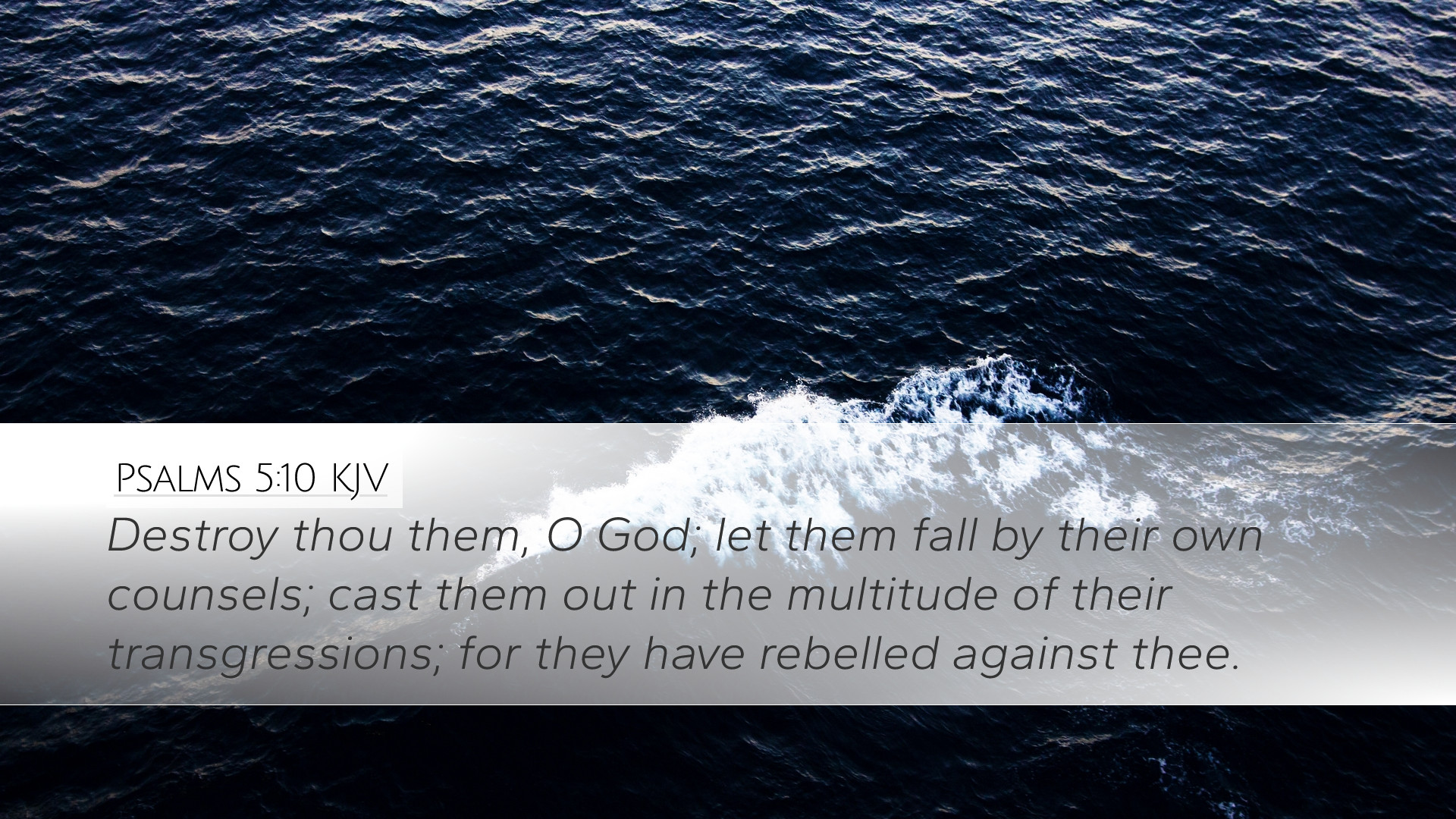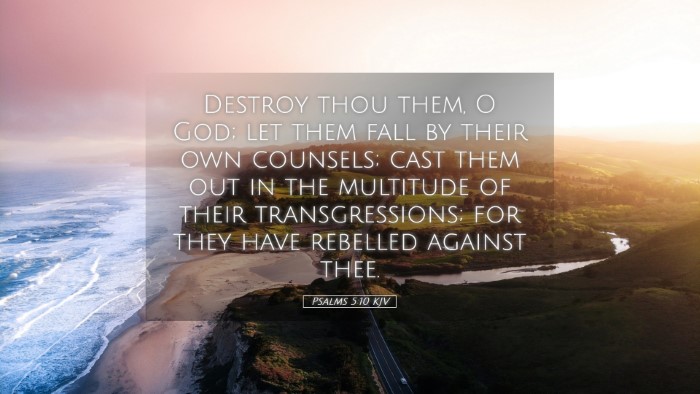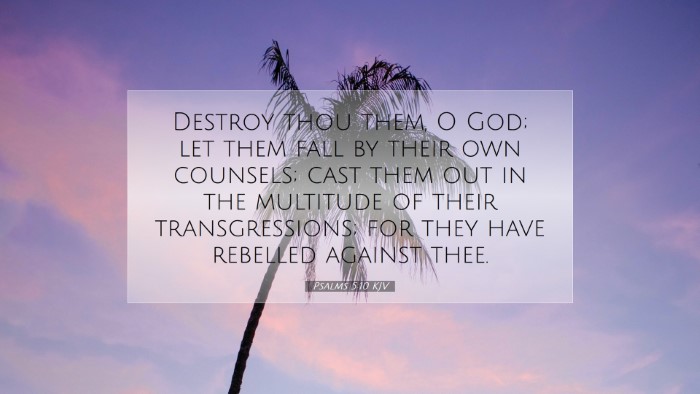Psalms 5:10 - Exegetical Commentary
Psalm 5:10 reads: "Declare them guilty, O God! Let them fall by their own counsels; cast them out in the multitude of their transgressions, for they have rebelled against you." This verse offers profound insight into the themes of justice, divine retribution, and the moral order that governs the believer’s relationship with God.
Contextual Background
The context of Psalm 5 is a cry for help in the face of ungodliness. David contrasts the righteousness of God with the wickedness of men. The psalm serves as a morning prayer, expressing the psalmist’s confidence in God’s justice while lamenting the wrongdoing of the wicked.
Verse Breakdown
-
“Declare them guilty, O God!”
The psalmist calls upon God to pronounce judgment on the wicked. This plea indicates a deep desire for divine justice, which reflects a core theme throughout the Psalms: reliance on God as the ultimate judge of human affairs.
-
“Let them fall by their own counsels;”
This phrase suggests that the wicked will reap the consequences of their own devisings. Matthew Henry notes that God allows the wicked to be ensnared by their intrigues, thus turning their own plans against them.
-
“cast them out in the multitude of their transgressions,”
The psalmist asks God to overthrow the wicked due to their numerous sins. Adam Clarke emphasizes the gravity of sin in this context, asserting that transgressions accumulate and merit rejection from God’s presence.
-
“for they have rebelled against you.”
The rebellion against God highlights the nature of sin as an affront to the divine order. Albert Barnes explains that rebellion implies a deliberate turning away from God’s authority, suggesting a grave state of moral decay.
Theological Implications
The overarching theological theme of Psalm 5:10 corresponds to the nature of God as just and righteous. The verse articulates a profound truth about divine justice - that God sees the wickedness of men and will respond accordingly. It reinforces the idea that while God is merciful, He is equally committed to justice.
Insights from Commentaries
Commentators like Matthew Henry draw attention to the psalmist's trust in God’s moral governance of the universe. Henry asserts that believers can confidently submit their grievances to God, knowing that He will right all wrongs in His perfect timing.
Albert Barnes reflects on the significance of the plea for judgment. He observes that the psalmist does not take vengeance into his own hands but instead seeks divine intervention. This trust in God’s righteousness serves as a model for believers when confronting injustice.
Adam Clarke highlights the intensity of the plea, highlighting that the cry for justice is not just a call for punishment but a declaration of God’s authority. Clarke posits that such appeals remind believers of God's sovereign power over human actions and decisions.
Practical Applications
-
Prayer and Intercession:
Pastors and Christian leaders can use this verse to teach about the importance of prayer in seeking God’s justice. It prompts believers to engage in intercessory prayer for those who stand in opposition to God.
-
Understanding Divine Justice:
The verse provides a basis for understanding divine justice as not only punitive but restorative. The faithful can rest assured that God’s ultimate goal is the establishment of a righteous order.
-
Encouragement in Trials:
For believers facing persecution or injustice, this verse serves as a reminder that God is aware of their struggles and that He will act against the wicked in His time.
Conclusion
Psalm 5:10 encapsulates vital truths about God’s character, human sinfulness, and the dynamics of justice. For pastors, students, theologians, and Bible scholars, this verse serves as a reminder of the centrality of God’s righteousness and the assurance that He sees and will address all injustices. As the faithful continue their spiritual journey, they are encouraged to embody the themes of this psalm: reliance on God’s justice and the commitment to righteousness.


